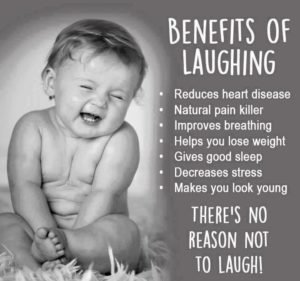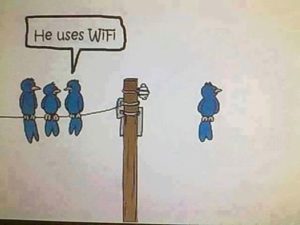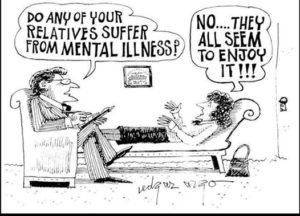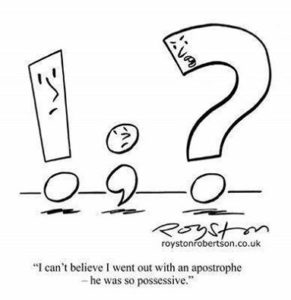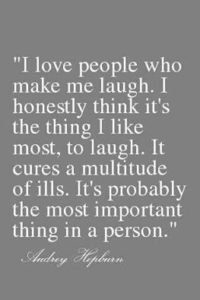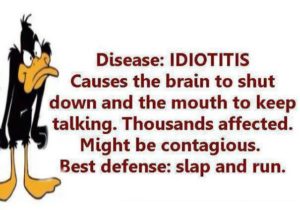
Why are computers so smart? Because they listen to their motherboard.
USING HUMOR IN THE CLASSROOM
LAUGH – IT’S GOOD FOR YOUR HEALTH! The field of gelotology is exploring the benefits of laughter. It was brought to the public’s awareness in Norman Cousins’ memoir Anatomy of an Illness. Cousins found that comedies helped him feel better and get some pain-free sleep. That’s because laughter helps the pituitary gland release its own pain-suppressing opiates. What can laughter do?
· Lowers blood pressure
· Increases vascular blood flow and oxygenation of the blood
· Gives a workout to the diaphragm and abdominal, respiratory, facial, leg, and back muscles
· Reduces certain stress hormones such as cortisol and adrenaline
· Increases the response of tumor- and disease-killing cells such as Gamma-interferon and T-cells
· Defends against respiratory infections–even reducing the frequency of colds–by immunoglobulin in saliva.
· Increases memory and learning; in a study at Johns Hopkins University Medical School, humor during instruction led to increased test scores
· Improves alertness, creativity, and memory
Humor and creativity work in similar ways, says humor guru William Fry, M.D., of Stanford University–by creating relationships between two disconnected items, you engage the whole brain. Humor works quickly. Less than a half-second after exposure to something funny, and electrical wave moves through the higher brain functions of the cerebral cortex. The left hemisphere analyzes the words and structures of the joke; the right hemisphere “gets” the joke; the visual sensory area of the occipital lobe creates images; the limbic (emotional) system makes you happier; and the motor sections make you smile or laugh. So let’s laugh. What makes you laugh?
Laughter Heals:
Helps reduce inflammation throughout the body — good news for your heart, brain and circulatory health.
“Massages” internal organs with effects similar to exercise. ( It’s sometimes referred to as “internal jogging”)
Provides a light workout for the heart, lungs, diaphragm and even the abdominal muscles.
Releases tension in the muscles of the face, neck, shoulders and abdomen — all common areas where we tent to hold lots of tension.
Helps lower blood pressure and cortisol levels, decreases pain and can also help stabilize blood sugar.
Stimulates chemical changes in the brain that help buffer our bodies against the cumulative effects of stress.
Burns a few extra calories: According to a university study, just 10 -15 minutes worth of chuckles throughout the day can burn up to 40 calories.
Stimulates the release of endorphins, the mood-elevating brain chemicals behind the “runner’s high.”
Is physically and mentally therapeutic — an involuntary response that positively alters mood instantly.
Laughter contrasts with many more conventional aspects of non-verbal communication. It seems to create euphoric states in the performer. There is some evidence to suggest these euphoric states are associated with the release of endorphins.
Singing and dancing have long been recognized as important components in the process of bonding whole communities
Although laughter forms an important part of human non-verbal communication, it has received rather less attention than it deserves in the experimental and observational literatures. Laughter is associated with feelings of well being which may be due to the release of endorphins and the hypothesis was tested in a series of six experimental studies using change in pain threshold as an assay for endorphin release.
The results show that pain thresholds are significantly higher after laughter than in the control condition. This pain-tolerance effect is due to laughter itself and not simply due to a change in positive affect.
It is suggested that laughter, through an endorphin-mediated opiate effect, may play a crucial role in social bonding.
University of Oxford researchers found that a good laugh is linked with feeling less pain, and it’s likely because laughing spurs the body to release feel-good chemicals called endorphins, which can also act as painkillers. Laughter has long been viewed as good medicine.
Laughter has been shown in past research to boost heart health by lowering blood pressure just as well as cutting salt. One study showed that laughter could cause the linings of people’s blood vessels to expand as much as aerobic exercise or using statins.
CLICK ON LINKS BELOW FOR MY FAVORITE JOKES:
Energy Jokes
Bee Jokes
Insect Jokes
Snow Jokes
Bird Jokes
Garden Jokes
Bunny Jokes
Weather Jokes
Halloween Jokes
Animal Jokes
Science/Math Jokes


How does the man on the moon cut his hair? Eclipse it.

